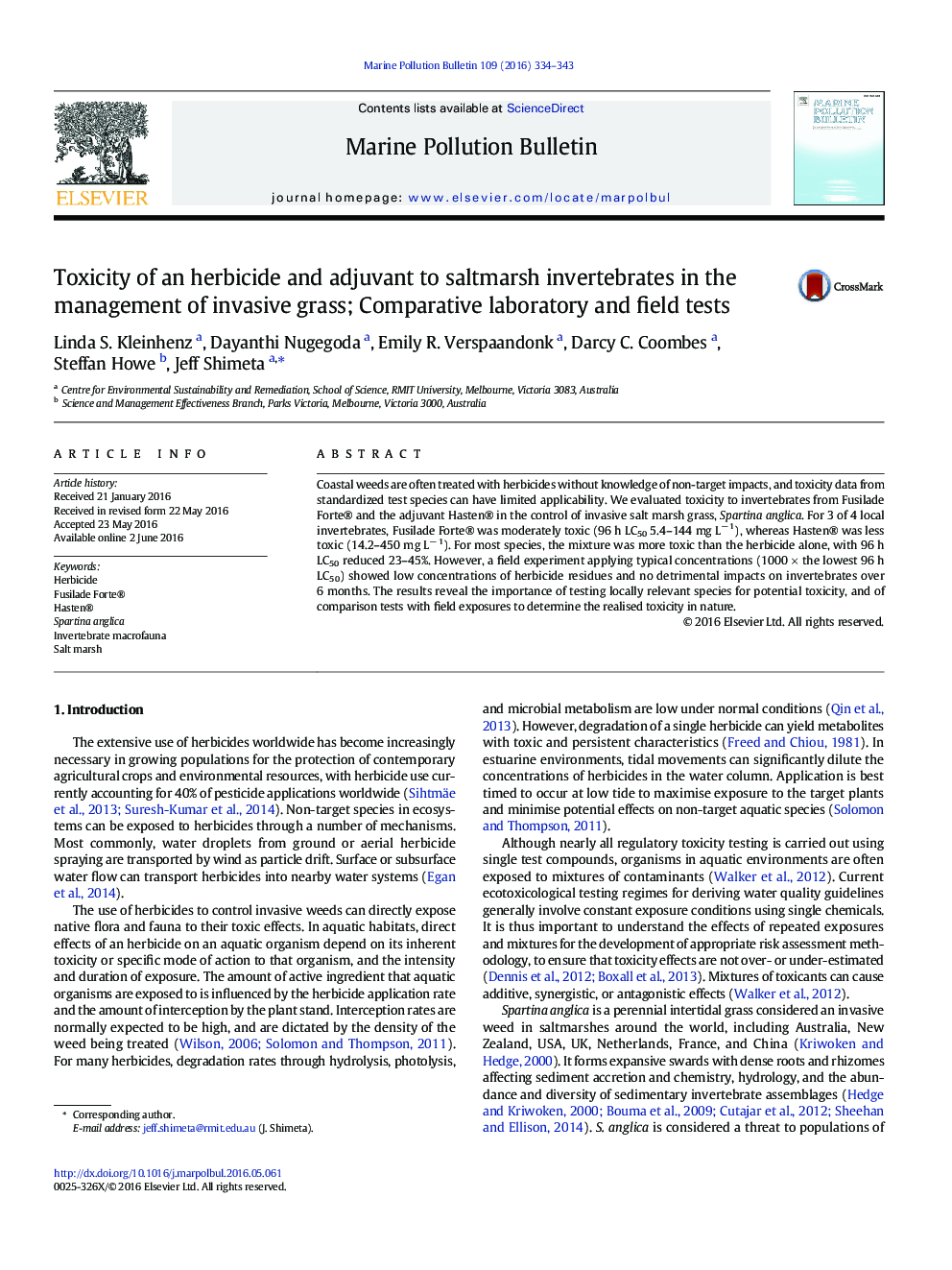| Article ID | Journal | Published Year | Pages | File Type |
|---|---|---|---|---|
| 4476408 | Marine Pollution Bulletin | 2016 | 10 Pages |
•The toxicity of Fusilade Forte® and Hasten® to native marine invertebrates was assessed.•In most cases, the chemical mixture was more toxic than the herbicide alone.•Field application of herbicide showed no detrimental impacts on invertebrates.•A comparative approach of laboratory and field tests yielded crucial insights.
Coastal weeds are often treated with herbicides without knowledge of non-target impacts, and toxicity data from standardized test species can have limited applicability. We evaluated toxicity to invertebrates from Fusilade Forte® and the adjuvant Hasten® in the control of invasive salt marsh grass, Spartina anglica. For 3 of 4 local invertebrates, Fusilade Forte® was moderately toxic (96 h LC50 5.4–144 mg L− 1), whereas Hasten® was less toxic (14.2–450 mg L− 1). For most species, the mixture was more toxic than the herbicide alone, with 96 h LC50 reduced 23–45%. However, a field experiment applying typical concentrations (1000 × the lowest 96 h LC50) showed low concentrations of herbicide residues and no detrimental impacts on invertebrates over 6 months. The results reveal the importance of testing locally relevant species for potential toxicity, and of comparison tests with field exposures to determine the realised toxicity in nature.
